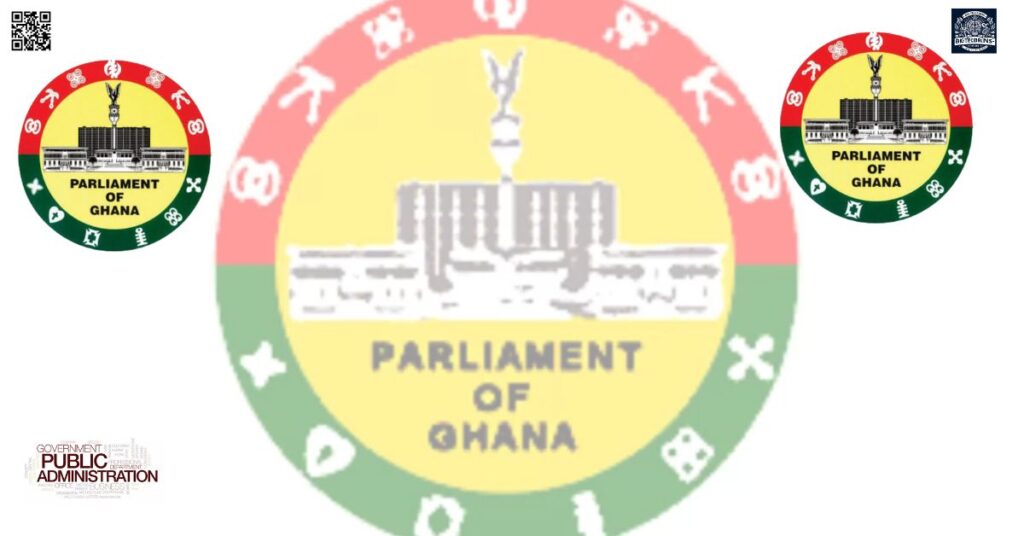History of Ghana’s Legislature | Parliament
Pre-Independence (Colonial Era):
- Legislative functions were first introduced during British colonial rule through the establishment of the Legislative Council in 1850. It was an advisory body to the Governor, with limited representation for indigenous Ghanaians.
- In 1946, the Burns Constitution allowed for African participation in the legislative process.
Post-Independence (1957):
- Ghana attained independence on March 6, 1957, and established a Parliament under the 1957 Constitution.
- The 1960 Republican Constitution replaced the Governor-General with a President, creating a unicameral legislature.
- Over the years, political turbulence, including military coups, disrupted parliamentary functions until the return to democratic governance in 1993 under the Fourth Republic.
Post-Coup Parliaments (1966–1992):
- The parliamentary system was disrupted by military coups but reestablished after the adoption of the 1992 Constitution.
Current Fourth Republic (1993–present):
- A unicameral Parliament was established, with MPs elected every four years to represent the people in a multiparty democracy.
Leadership of Parliament
Speaker of Parliament:
- Presides over Parliamentary sessions, ensuring orderly conduct and neutrality.
- Third in the line of succession to the Presidency.
First Deputy Speaker and Second Deputy Speaker:
- Assist the Speaker in managing parliamentary proceedings.
Majority and Minority Leaders:
- Represent the ruling and opposition parties, respectively, and coordinate activities within their caucuses.
Chief Whips:
- Ensure party discipline and manage parliamentary votes for both the majority and minority sides.
Structure of Parliament
Ghana’s Parliament is a unicameral legislature, meaning it consists of a single chamber. Its structure includes:
1. The Membership:
- Comprised of 275 Members of Parliament (MPs) elected from constituencies across the country.
- MPs are elected every four years through general elections.
2. Committees:
- Parliament operates through committees to enhance efficiency.
- Examples include:
Public Accounts Committee (PAC):
- Examines government expenditures.
Finance Committee:
- Reviews budgets and financial matters.
Appointments Committee:
- Vetting nominees for ministerial and other public offices.
3. Caucuses:
- MPs align with political party caucuses, such as the Majority Caucus (government) and Minority Caucus (opposition).
4. Parliamentary Service:
- Provides administrative support to Parliament.
Constitutional Roles
Legislation:
- Parliament enacts, amends, and repeals laws to govern the country.
- Bills are introduced and debated before being passed into law.
Oversight:
- Supervises the Executive branch to ensure accountability.
- Committees play a critical role in scrutinizing government activities, policies, and expenditures.
Approval of Budgets and Loans:
- Parliament debates and approves national budgets and financial agreements.
Representation:
- MPs represent the interests and concerns of their constituencies in national decision-making.
Approval of Appointments:
- Vet and approve key appointments made by the President, such as ministers, ambassadors, and judges.
Constitutional Amendments:
- Initiates and debates changes to the Constitution when necessary.
Offices Supporting MPs
Several offices and institutions work with or under Parliament to facilitate MPs’ duties:
Clerk of Parliament:
- Provides administrative support to MPs.
Parliamentary Committees:
- Includes Standing and Select Committees, such as the Finance Committee and Public Accounts Committee.
Parliamentary Service:
- Handles the logistics and operations of Parliament.
Research and Library Services:
- Offer MPs resources for informed decision-making.
Office of the Majority and Minority Leaders:
- Coordinate the activities of their respective caucuses.
Role in Ghana’s Governance
Under the 1992 Constitution, Parliament is a co-equal arm of government alongside the Executive and Judiciary. It plays a vital role in maintaining checks and balances, safeguarding democracy, and ensuring that the government remains accountable to the people.

